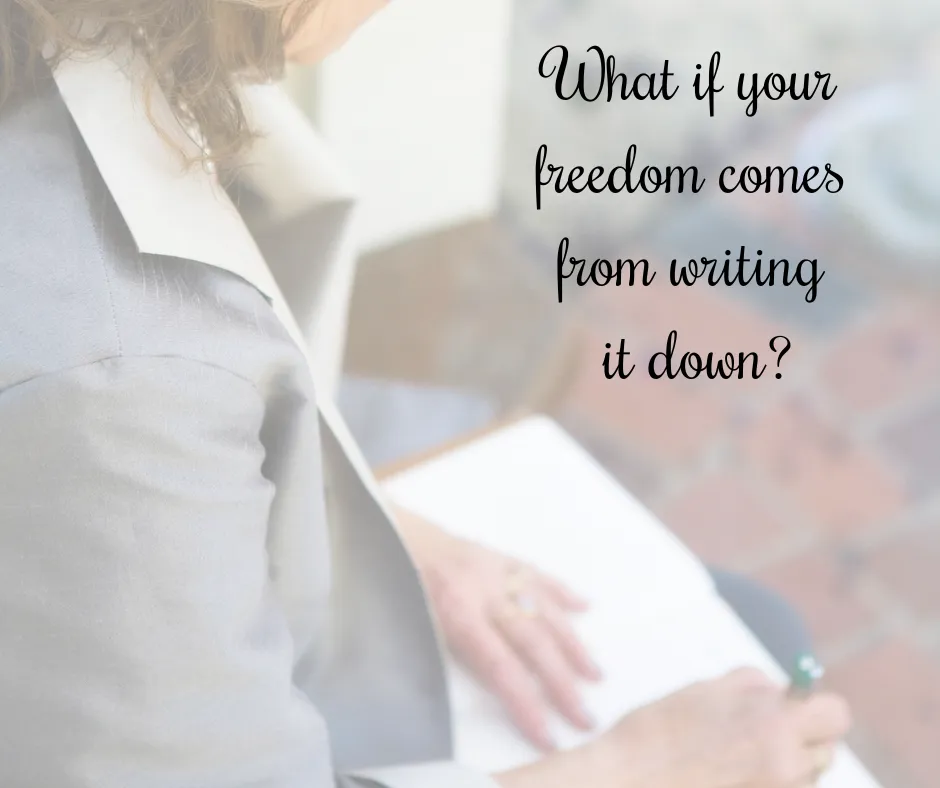
Writing is Freedom
Writing is Freedom
Your Unique Path to Creativity, Inspiration, Compassion, and Hope
There is a quiet kind of revolution that happens when you pick up a pen or open a blank document and begin to write. It may not shake the earth or shout from mountaintops, but it stirs your Soul. It opens doors that were shut tight, windows you forgot were even there. Writing is more than self-expression—it’s liberation. It’s a way to reclaim your truth, your voice, your place in the world. Writing is freedom.
But what does that really mean?
When we write, we are free to be. Free to tell the truth. Free to feel, to dream, to create. Writing allows us to transcend the noise of everyday life and return home to ourselves. Whether you are journaling quietly at your kitchen table or drafting a memoir to be shared with the world, writing is both a mirror and a map. It shows you who you are and leads you where you’re meant to go.
And in times of transition, uncertainty, or self-doubt—when life feels like too much or not enough—writing can become a lifeline. Not because it changes what’s happening outside, but because it transforms what’s happening within.
Let’s explore how writing brings freedom through the lenses of creativity, inspiration, compassion, and hope, with three actionable tips to help you step into that freedom, word by word.
1. Creativity as a Gateway: Write to Imagine Something New
Creativity is not about being artistic—it’s about being alive. It's about letting your mind roam where it’s been told not to go. Writing opens up your inner playground. You don’t need to write a novel or become a poet; even a simple list of "what ifs" can awaken dormant parts of your mind.
When you write creatively, you break out of old stories—especially the ones that say this is just the way things are. That’s where freedom lives: in your ability to imagine something else.
✨Start a “What If” Journal
Keep a small notebook just for wild ideas, dreams, and alternate realities. Ask questions like:
· What if I could speak to my younger self?
· What if the fear I feel is really a message?
· What if I started over today?
Write without judging. Let your imagination stretch. You’re not writing to make sense—you’re writing to break free.
2. Inspiration through Expression: Write to Tell Your Truth
We all carry stories—some shared, some silent. But the stories we don’t tell often have the strongest hold on us. Writing gives you permission to tell the truth without interruption. No one cutting you off. No one correcting your memory. Just you and the page.
When you tell your story—just as it is—you make room for healing, clarity, and often, revelation. Inspiration doesn’t always come from something big. It can come from the simple act of saying, “This is how it felt.”
And when you tell your truth, others recognize their own. You become a beacon of courage.
✨Write a Letter You’ll Never Send
Choose someone—a parent, a former partner, your younger self, even God—and write what you’ve never said. Don’t hold back. Don’t edit. Don’t worry about the outcome.
This exercise can help you name the unsaid, release the pain, and tap into the fierce freedom that lives beneath honesty. You may never mail that letter, but writing it will set something within you free.
3. Compassion and Hope: Write to Befriend Yourself
We’re often hardest on ourselves—especially when life hasn’t gone the way we expected. Writing is a way to extend compassion toward your past, patience with your present, and hope for your future. Through writing, you become your own witness, your own friend, your own healer.
When you write with self-compassion, you rewrite your relationship with yourself. You stop being your harshest critic and start becoming your kindest supporter. And from that place, hope takes root.
✨ Write a Daily Self-Compassion Note
Each evening, take five minutes to write a note to yourself. Begin with:
· “I see you…”
· “I’m proud of you for…”
· “It’s okay that…”
This small practice can soften your inner world, restore your hope, and remind you that freedom isn’t always about running away—it’s often about coming home to yourself.
